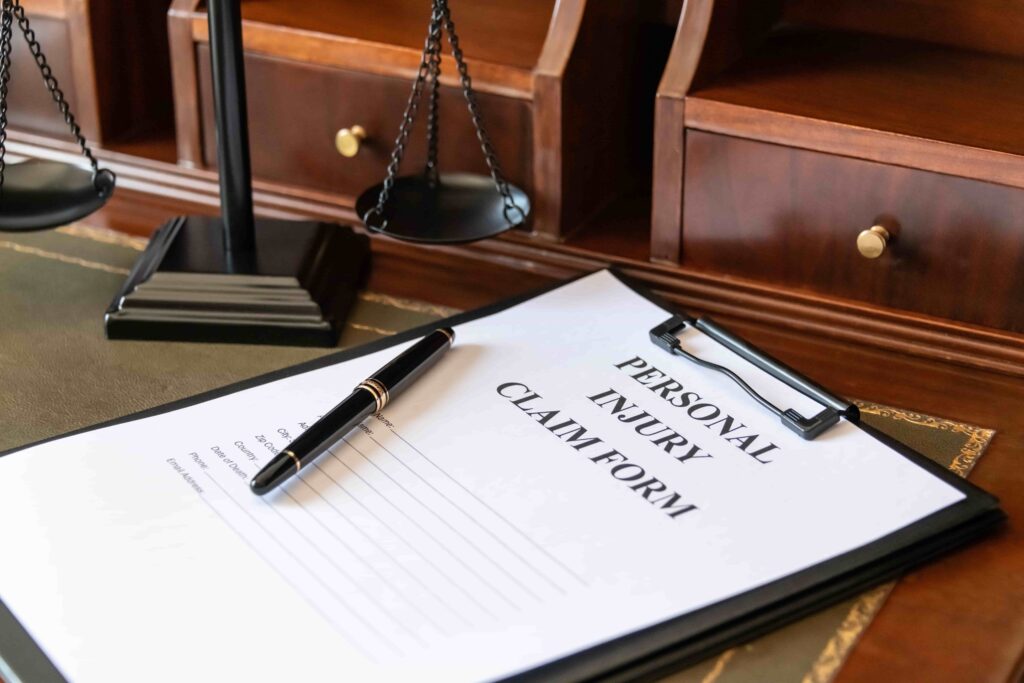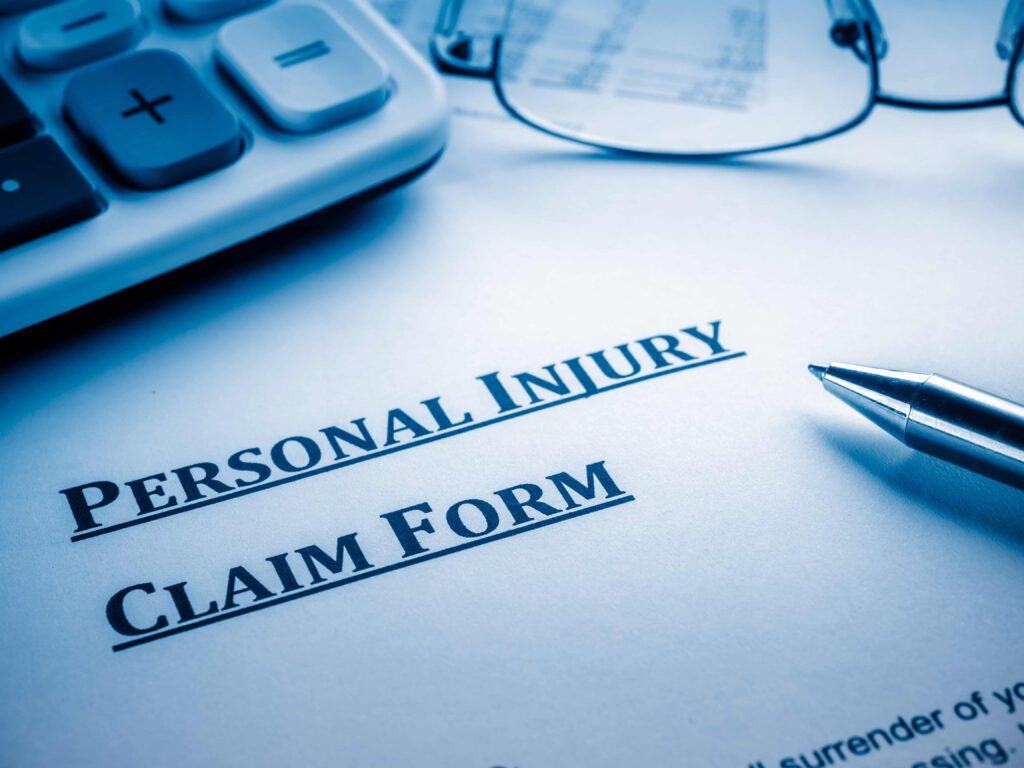
A common question that personal injury attorneys hear is: Do lawyers take cases they can’t win? The simple answer is yes, but with important context. Lawyers have an ethical obligation to provide zealous representation, even when outcomes are uncertain. Taking a case with slim chances of success doesn’t mean abandoning strategy or hope; it often involves advocating for a client’s rights, negotiating settlements, or creating leverage that a client may not see.
Attorneys weigh many factors before accepting a case: legal merits, available evidence, potential damages, likelihood of settlement, and the client’s goals. Sometimes, a case may be legally challenging, but pursuing it can set important precedents or protect a client’s interests.
Our personal injury attorneys carefully evaluate each case, ensuring clients understand the risks while offering legal guidance and a committed defense. Winning isn’t always guaranteed, but dedicated advocacy always is. Contact a personal injury attorney at Maze Law Offices today at (859) 882-9999 if you have questions about a potential legal claim.

A personal injury claim arises when someone suffers harm due to another person’s negligence, recklessness, or intentional actions. These claims allow injured individuals to seek compensation for losses such as medical expenses, lost wages, pain and suffering, and property damage. The goal of a personal injury claim is to hold the responsible party accountable while helping the victim recover financially and emotionally.
Personal injury cases can stem from a variety of incidents, including car accidents, slip-and-fall accidents, workplace injuries, defective products, and medical malpractice. To pursue a claim, the injured party must demonstrate that the other party owed a duty of care, breached that duty, and caused damages as a direct result of that breach. Evidence such as medical records, witness statements, and expert testimony often plays a vital role in building a strong case.
Filing a personal injury claim can be complex, involving legal procedures, negotiations with insurance companies, and sometimes litigation. Experienced attorneys guide clients through every step, ensuring their rights are protected and that they receive the maximum compensation possible. While no case guarantees a specific outcome, pursuing a personal injury claim is a vital step toward recovery and justice for those who have been harmed.
Personal injury claims arise when an individual has been harmed due to the negligence, recklessness, or intentional actions of another party. These claims are designed to help victims recover compensation for medical bills, lost wages, pain and suffering, and other related losses. Understanding how these claims typically arise can help you recognize when legal action may be appropriate.
Common situations that can lead to a personal injury claim include:
In each scenario, the injured party must show that the responsible party owed a duty of care, breached that duty, and caused damages as a direct result. By pursuing a personal injury claim, victims can hold negligent parties accountable while seeking compensation to recover and move forward with their lives.

Most personal injury claims follow a similar process:
The first step in a personal injury case usually begins with a consultation with an experienced personal injury attorney. During this meeting, the personal injury lawyer reviews the circumstances of the incident, examines available evidence, and discusses the client’s goals.
Once a case is accepted, the attorney begins a thorough investigation. This may include collecting medical records, police reports, witness statements, and any other documentation relevant to the incident. Expert opinions may also be obtained to strengthen the claim, such as accident reconstruction or medical evaluations. This stage is critical in establishing liability and proving the extent of damages.
Many personal injury cases are resolved through negotiation rather than going to trial. Attorneys communicate directly with insurance companies to seek fair settlements. They advocate on behalf of the client to ensure compensation covers medical bills, lost wages, property damage, and other related expenses.
If a fair settlement cannot be reached, the attorney may file a lawsuit and proceed to court. This involves pre-trial motions, discovery, and potentially a trial before a judge or jury. While litigation can be lengthy, it ensures that clients’ rights are fully protected and that responsible parties are held accountable.
Cases can conclude with a settlement at any stage or after a court judgment has been rendered. Once resolved, the client receives compensation, and the attorney ensures that all legal obligations are satisfied. Throughout the process, professional guidance helps manage complexities and maximizes the likelihood of a favorable outcome.
In personal injury law, it may seem counterintuitive for an attorney to take a case with slim chances of success. However, experienced attorneys understand that “winning” isn’t always a simple yes-or-no outcome. Even challenging cases can yield meaningful results for clients.
First, remember that most personal injury claims don’t go to court, so your attorney may not ‘win’ the case in the sense that many people think. In many injury claims, the case is settled out of court with the insurance company, allowing the injured person to obtain compensation for their losses after the attorney negotiates on their behalf. That isn’t a ‘win’ in the courtroom, but it’s still a win for the injured party.
Second, your personal injury attorney may take the case to protect your rights or hold negligent parties accountable. Sometimes, pursuing a case, even one with uncertain odds, can encourage insurance companies to offer compensation, prevent future harm, or set a legal precedent that benefits others.
Another reason is that outcomes in personal injury cases are rarely entirely predictable. Evidence may emerge, or circumstances may change, improving the likelihood of a positive result. Skilled attorneys also know how to manage risk, clearly communicating potential challenges to clients before moving forward.
Personal injury attorneys carefully evaluate each case, weighing its merits, potential damages, and legal hurdles. Taking a case with difficult prospects does not mean abandoning strategy; it means advocating zealously and exploring every avenue to secure the best possible outcome for the client, even when the path is uncertain.
The outcome of a personal injury claim can vary widely depending on the facts of the case, the severity of the injuries, and the strength of the evidence. Most personal injury claims are resolved through settlements rather than going to trial. Settlements allow both parties to avoid the time, expense, and uncertainty of court proceedings while providing compensation for medical bills, lost wages, property damage, and pain and suffering.
While many cases settle, it’s essential to understand that the amount of compensation can vary significantly. Factors that influence the likely outcome include the clarity of liability, the extent of documented injuries, the credibility of witnesses, and any prior legal precedent. Attorneys also play a key role by negotiating with insurance companies to ensure a fair settlement.
In some cases, if a fair settlement cannot be reached, the claim may proceed to trial. While trials carry more uncertainty, they also provide an opportunity to seek full compensation through a court judgment. Consulting with an experienced personal injury attorney at Maze Law Offices can help you understand realistic expectations for your case and guide you toward the best strategy for achieving the most favorable outcome.

It’s usually in the injured person’s interest to retain a skilled personal injury attorney. Here’s what your lawyer can do for you:
A personal injury lawyer begins by carefully evaluating the details of your case. They assess the circumstances of your injury, review evidence, and identify potential legal claims. This initial step is vital for developing a strategy tailored to your unique situation, ensuring that all aspects of your case are addressed effectively.
Strong evidence is the foundation of any successful personal injury claim. Your attorney will collect medical records, accident reports, witness statements, and other relevant documentation. In some cases, expert testimony may be obtained to support your claim. By meticulously building your case, a lawyer increases the likelihood of securing fair compensation.
Insurance companies often aim to minimize payouts. A personal injury attorney handles all communication and negotiations on your behalf, ensuring your rights are protected. They work to obtain settlements that fully cover medical expenses, lost income, property damage, and pain and suffering.
If a fair settlement cannot be reached, your attorney can represent you in court. They will handle all legal procedures, including filing motions, conducting discovery, and presenting your case at trial. Their experience and knowledge of personal injury law can significantly impact the outcome.
Beyond legal knowledge, a personal injury lawyer provides guidance and reassurance throughout the process. They explain complex legal procedures, answer questions, and help you make informed decisions. With professional support, you can focus on recovery while your attorney works to achieve the best possible outcome.
No attorney can guarantee a win, as outcomes depend on evidence, liability, and unforeseen circumstances. However, if your lawyer takes your case, it’s likely because they believe there is a strong possibility of a settlement or a favorable verdict.
Cases with no proof of negligence, pre-existing injuries, or incidents outside the statute of limitations are extremely difficult to win.
Without strong evidence like medical records, accident reports, or witness statements, winning a claim becomes highly unlikely.
Yes. Filing after the legal deadline can make a case unwinnable.
Minor or unproven injuries often result in low compensation and may not be worth pursuing.
These cases face strict notice requirements and immunity laws, making them harder to win.
They may, to protect rights, negotiate a settlement, or set a legal precedent, but winning is uncertain.
Were you injured recently by another person or entity? You don’t have to wonder if an attorney will take your case or not. Call Maze Law Offices today at (859) 882-9999, and we’ll tell you if your case has merit. The consultation is free, so call today.
